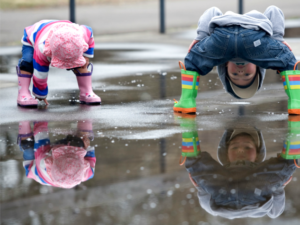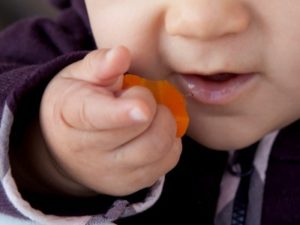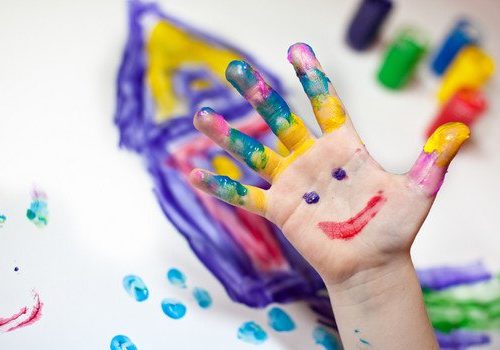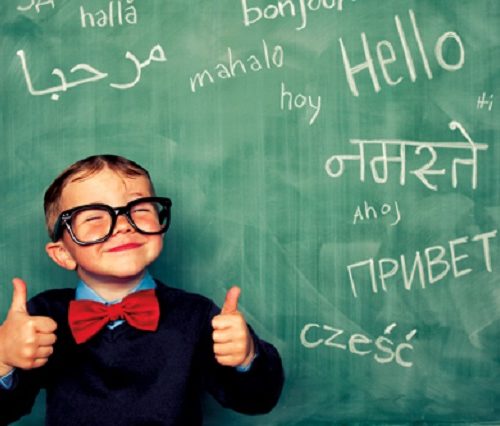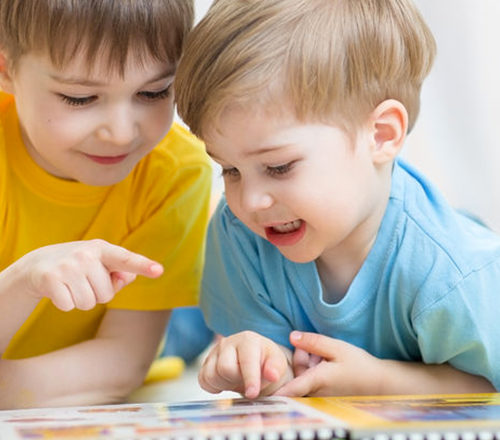Small children are surrounded by an enormous amount of stimuli and information. How to they know what to use and ‘learn’ and what to ignore? Ever since they are newborns children use past experiences to make forecasts. Events that are in line with the forecast (such as a ball that rolls and stops when it...
Author: Michael Mostert (Michael Mostert)
USE YOUR HANDS WHEN YOU SPEAK
Adults and children often speak using their hands. In the case of children this helps them learn better. A child who does not yet know the word “dog” but points at a dog will probably hear his mother say “well done, that’s a dog”. A child who says the word “dog” and points towards a...
LEARNING TO BE CREATIVE
Studies reveal that there is a close relationship between living abroad for some time and being creative. Five series of comparable individuals (groups differed in terms of level of education, job, age and certain personality traits) from various European countries and USA were studied in four different situations where being creative helped solve some problems....
SLEEP ON IT
REM sleep is a phase of sleep in which we dream. In this stage the brain is active just as if we were engaged intellectually. It has been discovered that during REM sleep neurons form certain connections in various areas of the brain and certain neurological circuits awaken (which otherwise are dormant when one is...
PACIFIERS AND LANGUAGE
Six-month old infants who obviously cannot speak, can discriminate between the sounds of different consonants. However, if they are sucking a pacifier the distinction is much harder because the pacifier interferes with tongue movements that help the infant attempt to repeat the sound of the consonants it just heard. Remove the pacifier and the infant...
BE TOLERANT
Chimps make no distinction in asking people whether blindfolded or not for food. Hide a banana under one of three plates and then signaling to the chimp under which plate the banana is hidden will not help the chimp find it. Dogs instead will understand, but not chimps, even if they are our close cousins....
BEING BILINGUAL
Ever more children and youngsters who live in Europe are bilingual. This is different from immigrants born in one culture and brought up in another. It is also different from children brought up in a single culture and single language context who then for some reason become multicultural and multilingual. For many youngsters in Europe...
OUR DEFENCES
Nature has programed us to respond to danger in fractions of a second. With the help of cortisol, also called stress hormone, we immediately decide whether to fight or flee. In times long gone by such a decision was part of everyday life and served the purpose of saving our life at the lowest possible...
LET’S BE RATIONAL
Psychologists wonder why children can be very rational in their arguments (particularly if there is something to gain for them) yet often incapable of understanding concepts related to maths or physics. Adults too are good at reasoning in certain contexts but may be hopeless in understanding issues concerning statistics. They suggest that reasoning is not...
IT’S DISGUSTING
Feeling disgusted about something is a sensation that in evolutionary terms helps protect us from disease. The feeling is still young (a few hundred thousand years old) respect to other responses such as anger or fear that appeared already a few million years ago. Because so young its use is still imprecise. Children use the...

